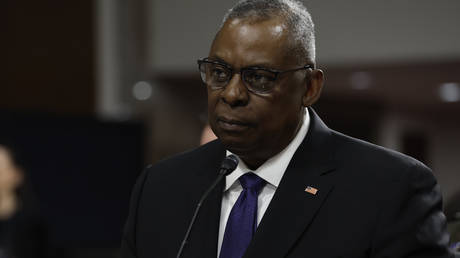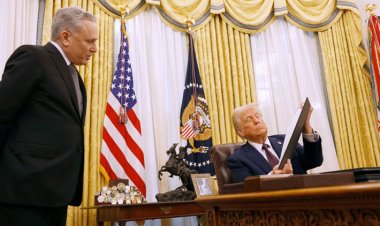US urges ratification of Sweden’s NATO bid
US Defense chief Lloyd Austin says Washington hopes Sweden will soon join NATO, and urged Türkiye and Hungary to ratify Stockholm’s bid Read Full Article at RT.com

Defense chief Lloyd Austin says Washington is looking forward to the Nordic state joining the bloc this summer
The US has reiterated its support for Sweden’s NATO membership as Secretary of Defense Lloyd Austin visited the country to meet with his Swedish counterpart, marking the first time a Pentagon chief has visited the Nordic state in over 20 years.
Austin told reporters at a press conference that Washington “looks forward to soon welcoming Sweden as the 32nd” member of NATO, and said the US hopes this happens before the upcoming NATO summit in July.
The defense chief urged Türkiye and Hungary, the last two NATO members yet to approve Stockholm’s membership, to ratify the accession as soon as possible.
Last May, Sweden and Finland renounced their longstanding neutrality and submitted bids to join the US-led military bloc, citing the perceived threat from Russia due to its military operation in Ukraine.
However, in order to be accepted into the bloc, the membership application must first be ratified by all current member states. This process was blocked by Hungary and Türkiye, with Ankara accusing the Nordic states of supporting Kurdish “terrorist groups” such as the Kurdistan’s Workers’ Party (PKK).
While Finland’s bid was eventually ratified by both Ankara and Budapest in late March, with the country officially joining the bloc earlier this month, Sweden’s NATO bid has remained in limbo.
The Turkish authorities claim that Stockholm has not yet fully addressed its grievances, while Hungarian Prime Minister Viktor Orban has accused it of “spreading blatant lies about Hungary, about the rule of law in Hungary, about democracy, about life here.”
Both Sweden and Finland have been fiercely critical of Hungary’s conservative government. Both support the EU’s withholding of funds from Budapest over Orban’s supposed stifling of LGBTQ and migrant rights, as well as judicial independence concerns.






















